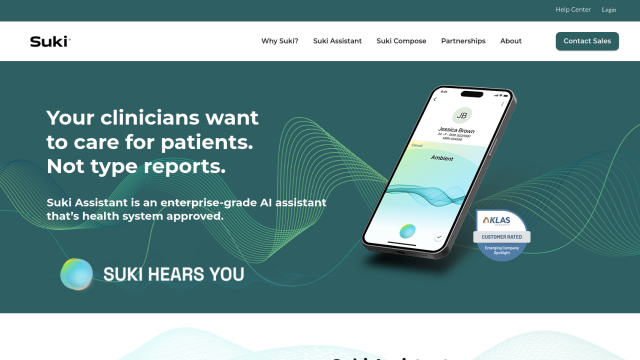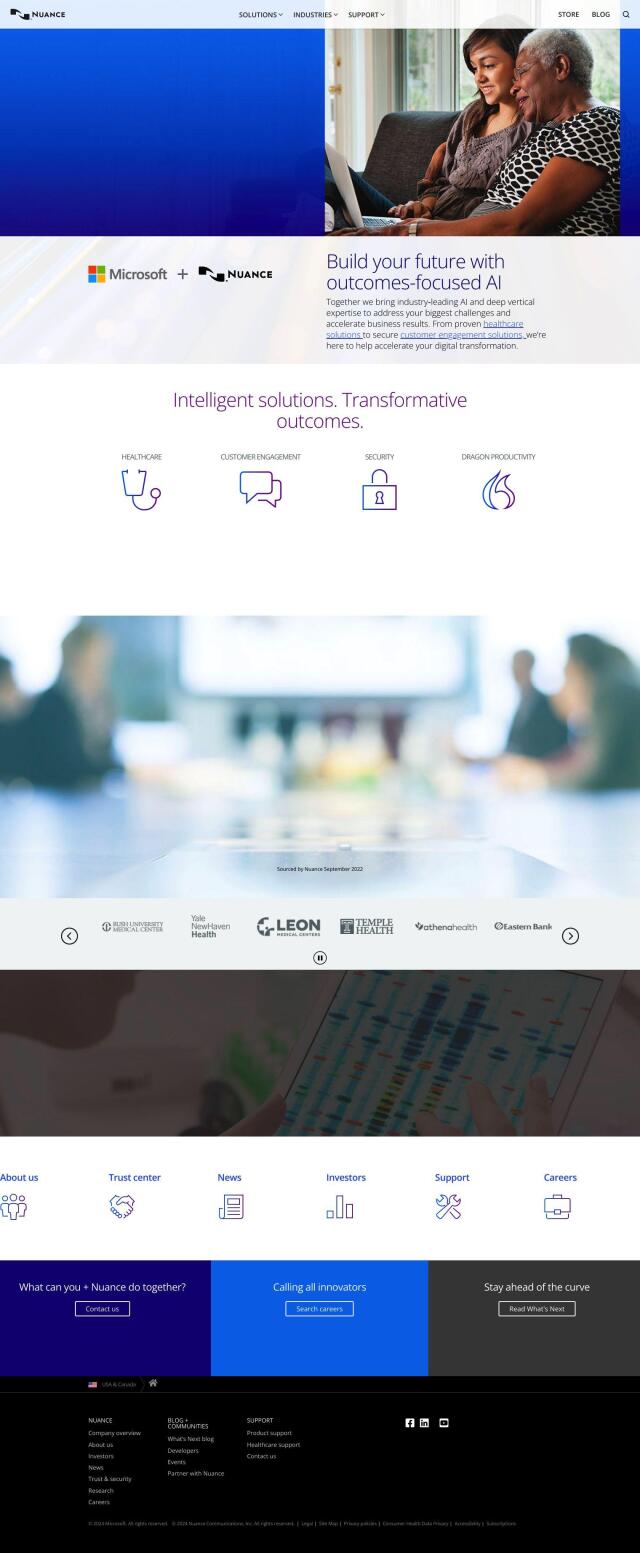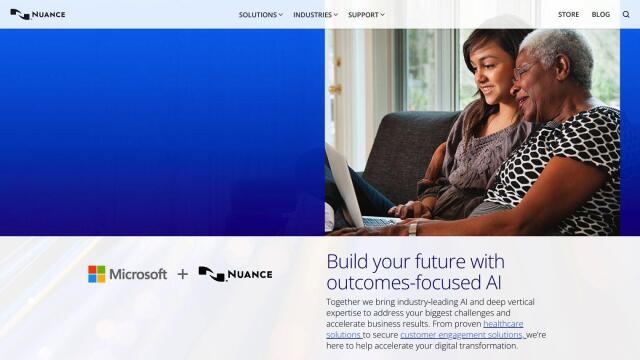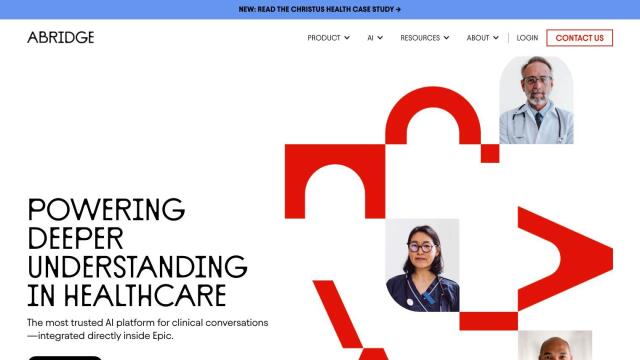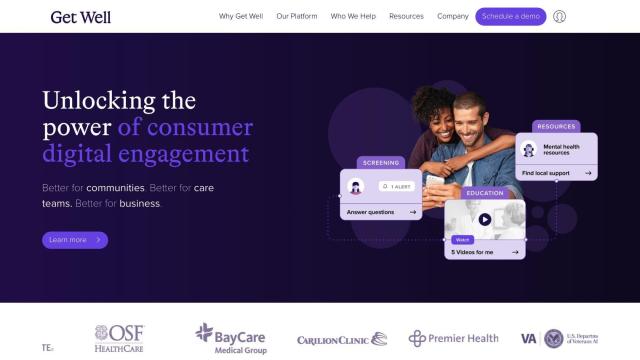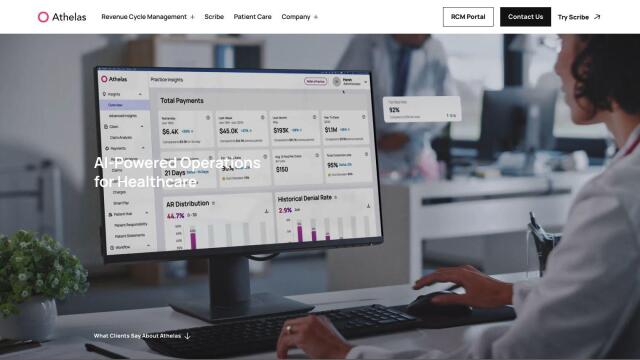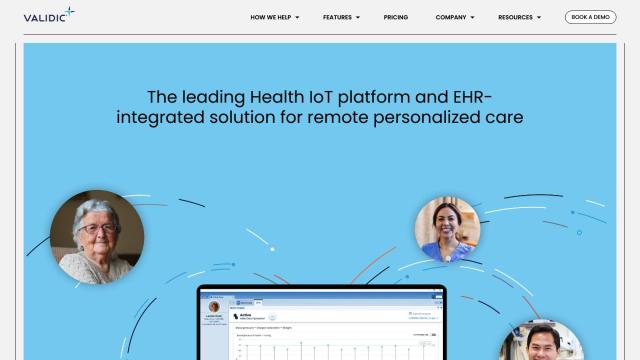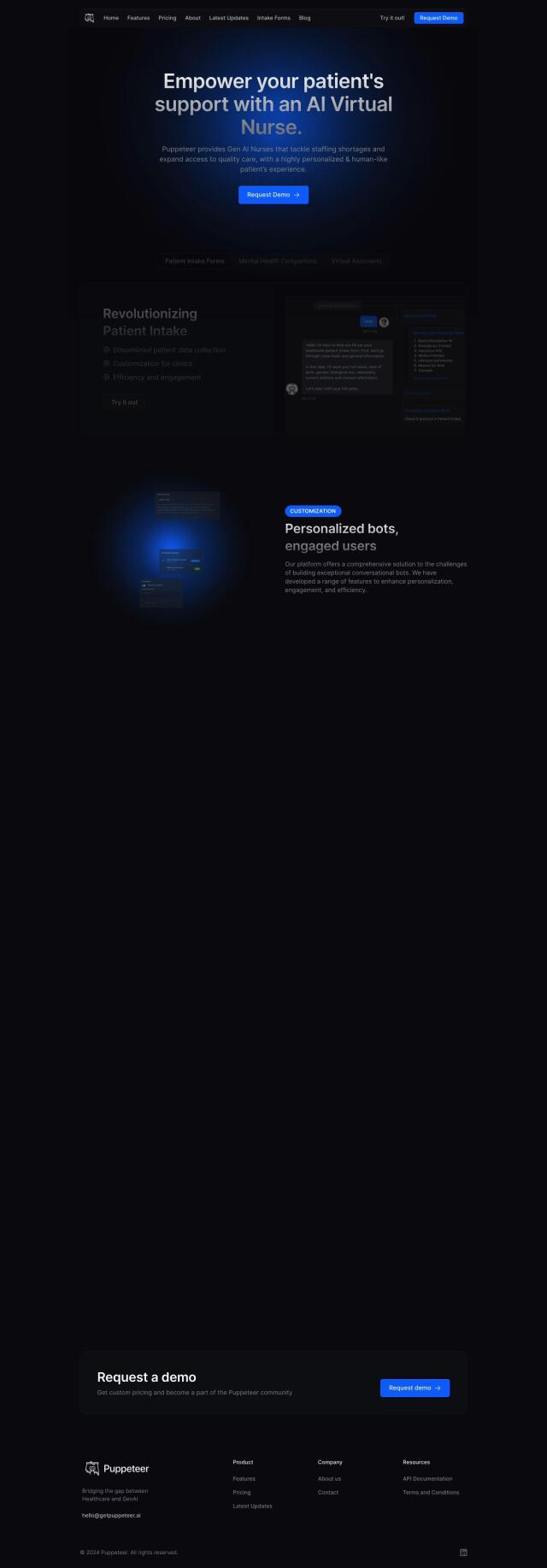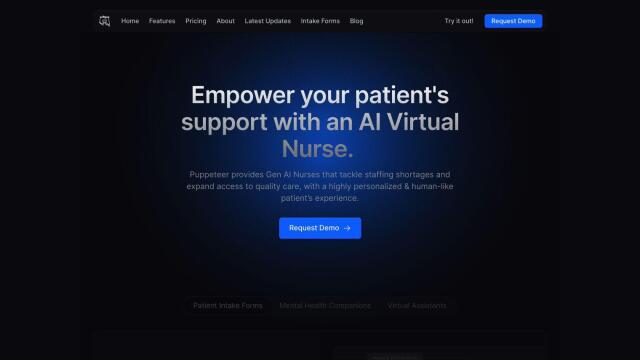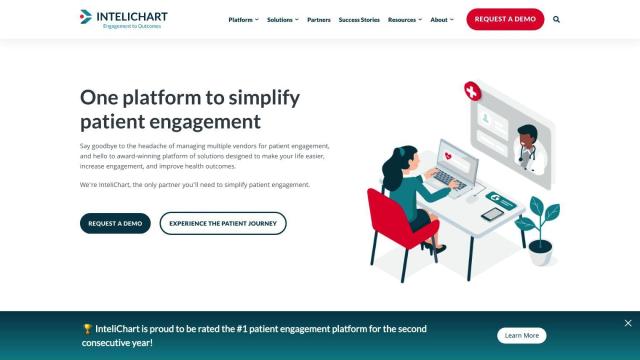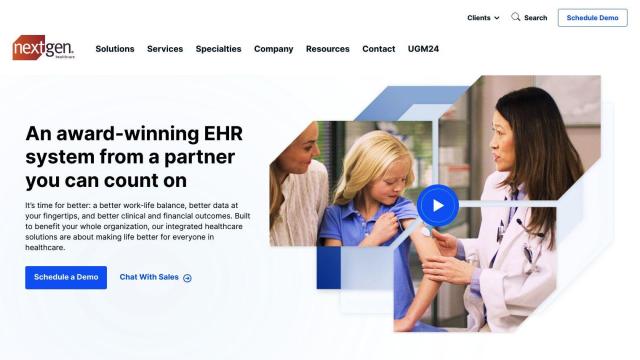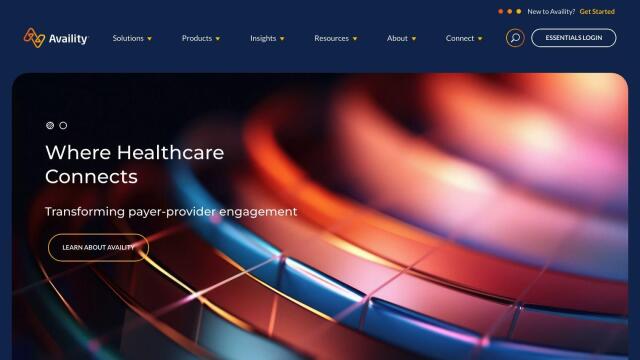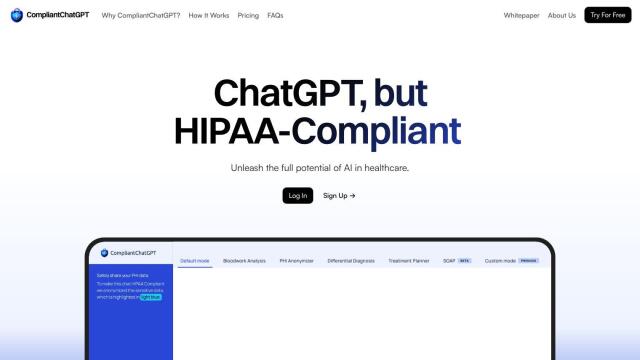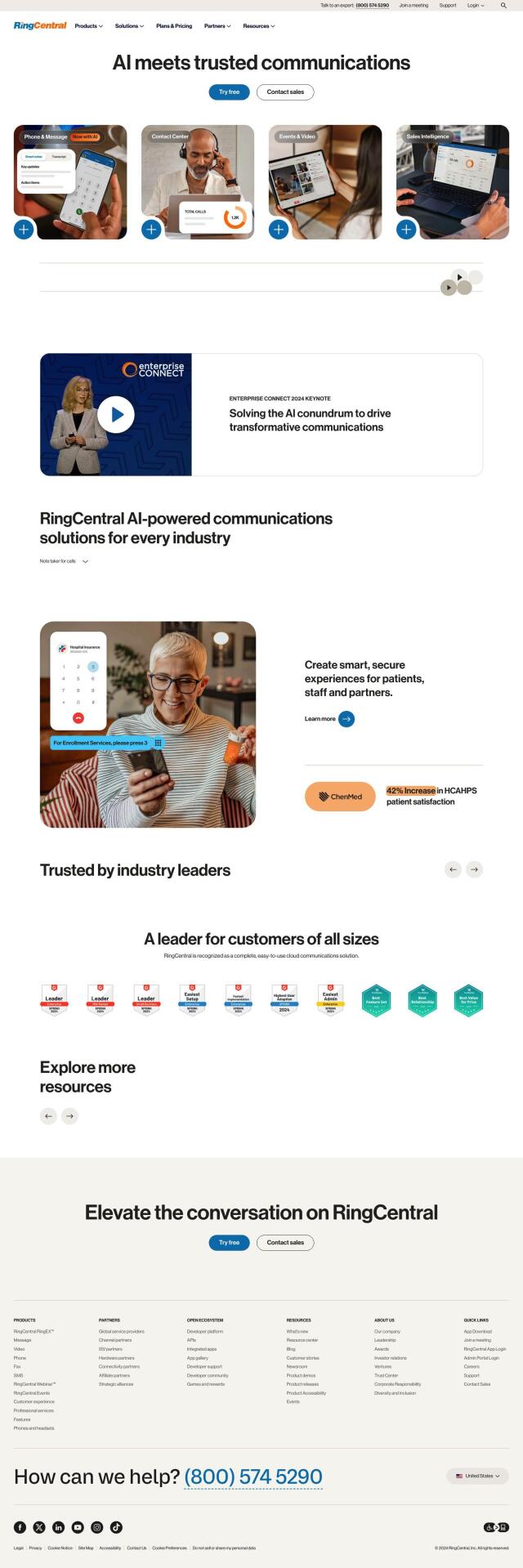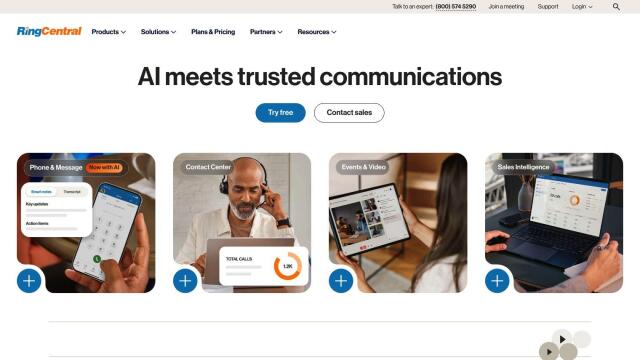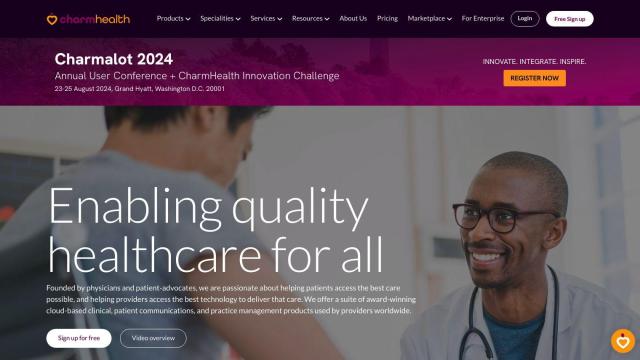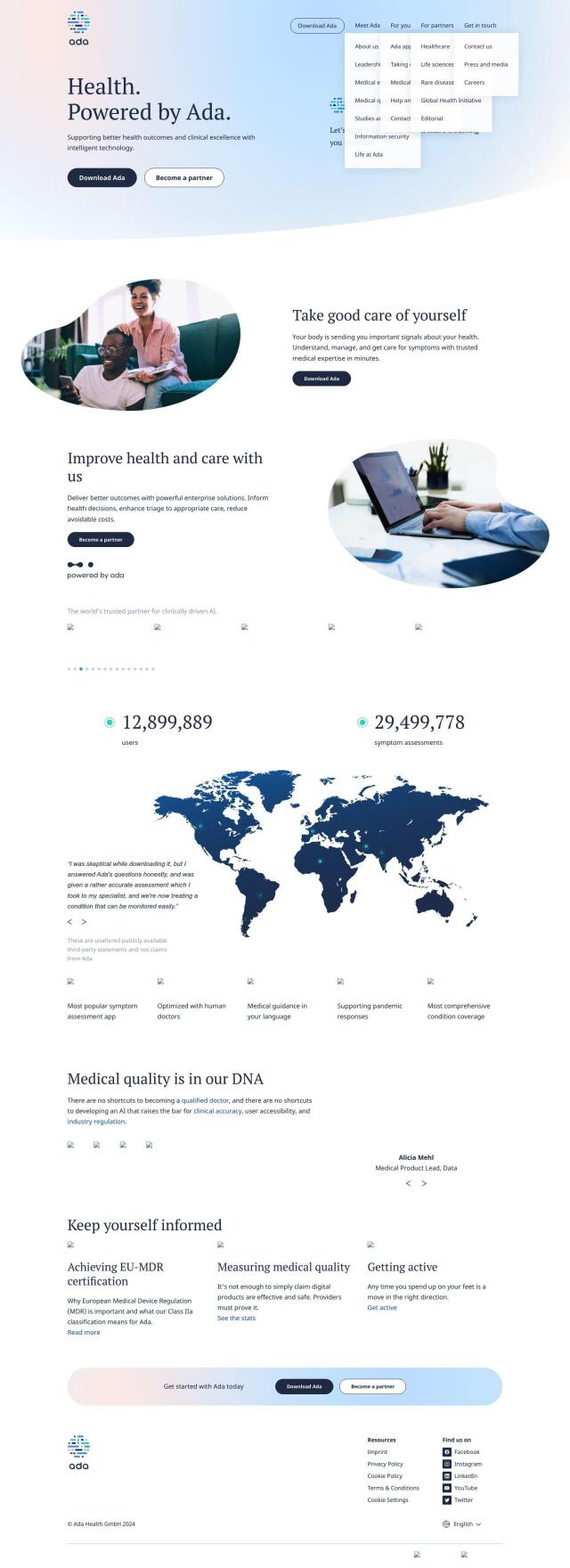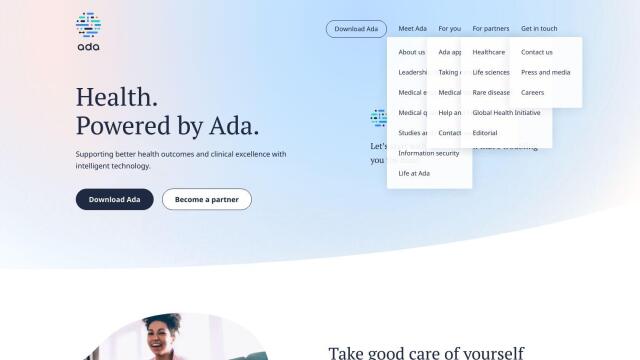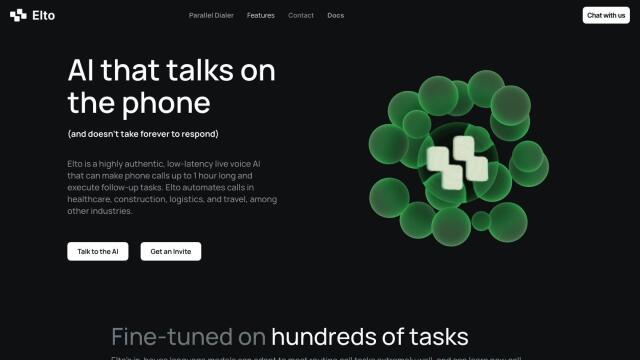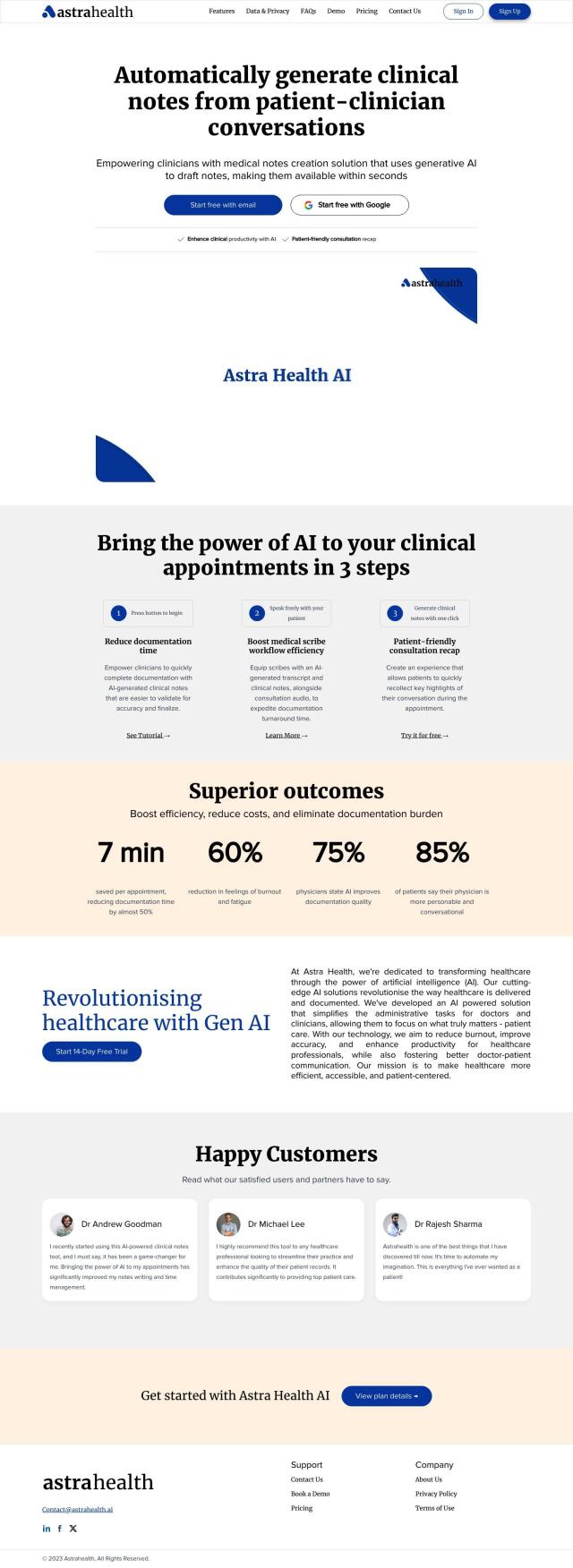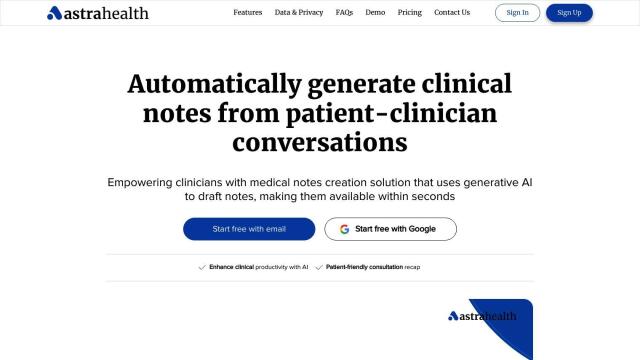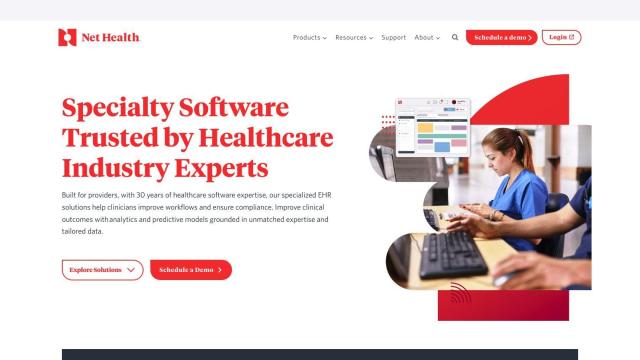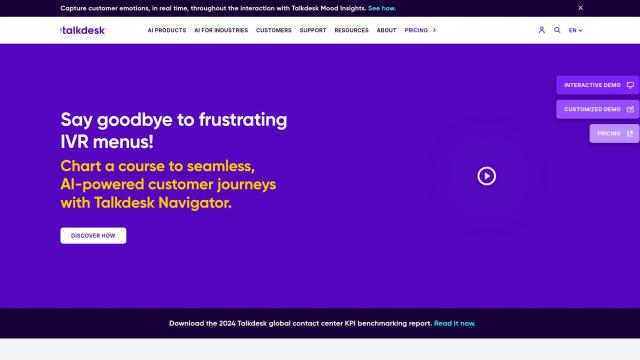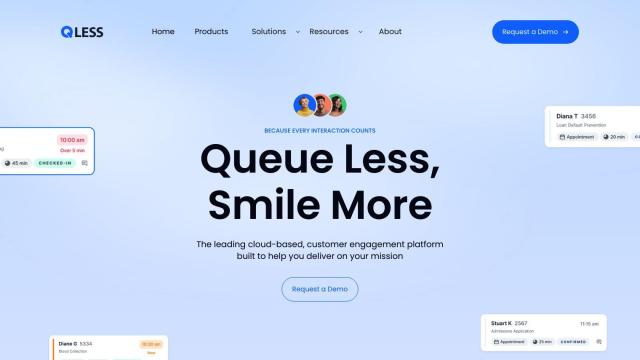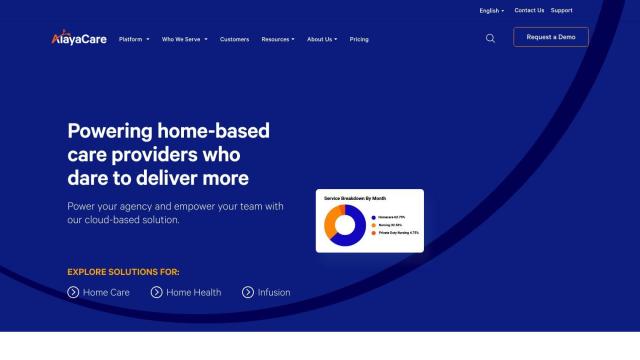Question: Do you know of a tool that can help healthcare providers reduce phone calls and improve team communication, while also improving patient outcomes?

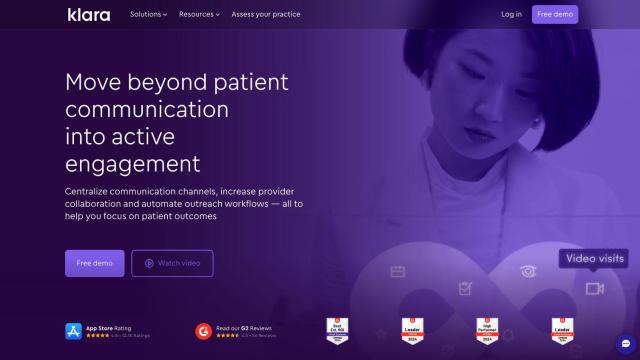
Klara
If you're looking for a service to help health care providers cut phone calls and improve team communication to improve patient outcomes, Klara is a good option. Klara is a patient engagement platform that centralizes communication channels, enables collaboration among healthcare staff and automates outreach workflows. It cuts phone calls by centralizing messages across multiple channels and automating tasks like reminders and follow-ups. With integration with major EHR systems, Klara is HIPAA compliant and can help improve patient communication for better patient satisfaction.

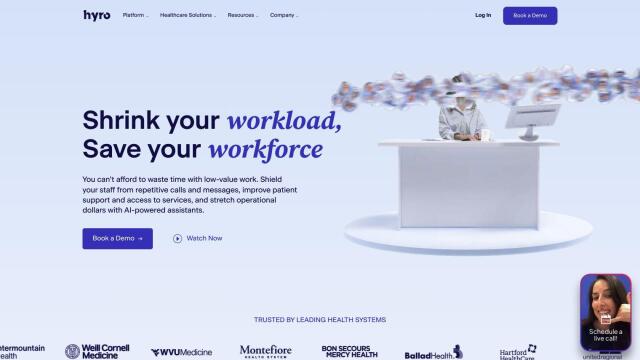
Hyro
Another option is Hyro, a conversational AI-powered system that automates up to 85% of patient interactions, including answering frequently asked questions, scheduling and IT help desk calls. Hyro's AI assistants are explainable, controllable and compliant, and can be integrated with systems like Epic EMR and Salesforce. By deflecting non-essential calls, Hyro optimizes call center operations, reduces costs and improves patient engagement, making it a good option for health care organizations that want to improve communication.

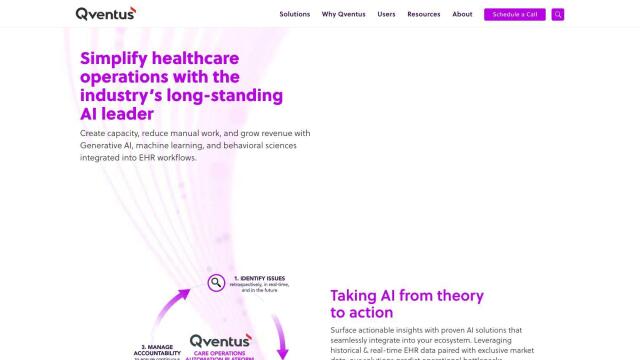
Qventus
For those who want to optimize performance, Qventus offers a full health care operations platform that combines AI, machine learning and behavioral science. It automates tasks like phone calls, document processing and image processing so health care staff can focus on more important work. Qventus integrates with many EHR systems and has reported improvements in operational performance, length of stay and patient flow, so it's a good option for health care providers who want to reduce manual work.

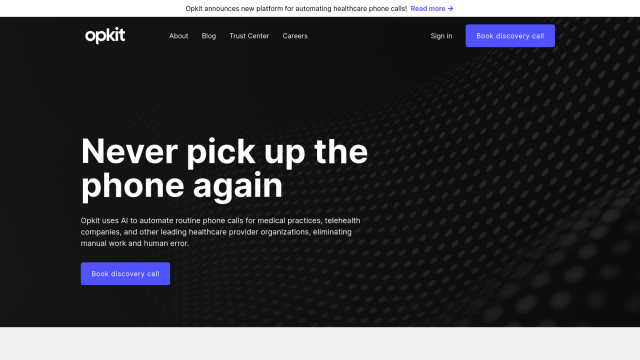
Opkit
Last, Opkit is an AI-powered automation system that can handle mundane phone calls, reducing human error and freeing up staff time. It's secure and HIPAA-compliant, with features like high accuracy data gathering and a human fallback team for calls the AI can't handle. Opkit's simple interface and developer-friendly API means it's a flexible option for automating repetitive tasks in health care.

